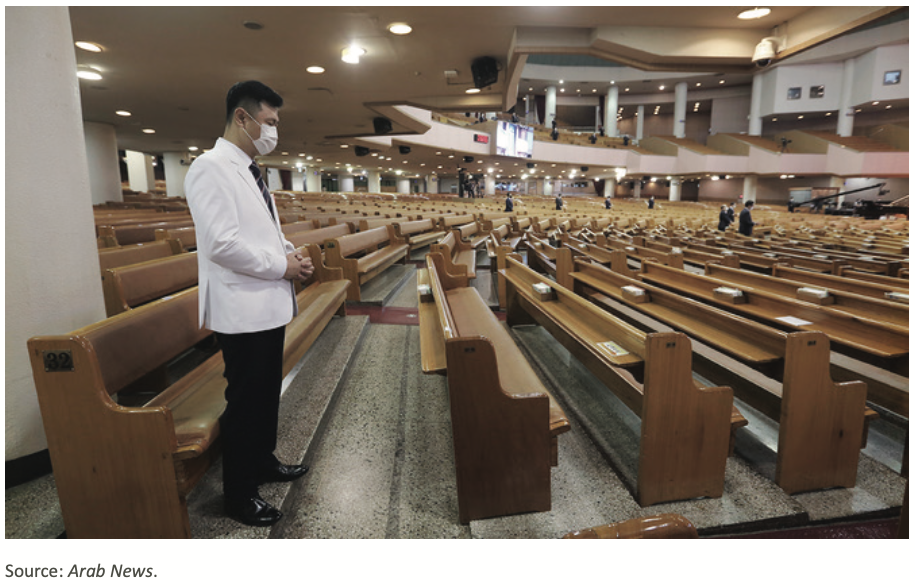
Religious groups in Korea continue to face controversy and some fallout from the pandemic, even though there has been considerable diversity in how Korean religions have dealt with the virus, according to scholars speaking at a roundtable session of the recent conference of the American Academy of Religion in San Antonio, which RW attended. The new religious movement Shincheonji gained notoriety for being an early super-spreader of the virus and for its defiance of the government’s public health measures. But Holly Folk of Western Washington University noted how the group was long viewed negatively by Korean churches before the pandemic for its heterodox teachings, including beliefs that its leader Lee Man Hee is the spirit of Christ and that other churches represent the anti-Christ. Eventually Hee was found not guilty of numerous charges defying public health laws. Folk said that the group has become more guarded against scholars researching it, though it has become more open to the general public, such as by, for instance, holding online seminars on the book of Revelation. For the Buddhist temples in Korea, there was no concerted effort regarding the virus because of their decentralized nature, with 482 Buddhist denominations in the country, according to Franklin Rausch of Lander University. While ecumenical associations of Buddhists have offered guidance regarding the pandemic, private and independent temples have been more vulnerable to the virus. Buddhist temples in general have faced steep declines in their finances since the pandemic—ranging from 30 to 50 percent. While larger temples have been able to use online offerings, smaller temples have lacked the resources for such an innovation.

Up until the pandemic the Catholic Church in South Korea had experienced growth, but it has since seen declines, especially in its finances, according to Jeongeun Park of St. Thomas More College. Catholic parishes have mainly embraced a hybrid model rather than going completely online. But many Catholics have also revived traditional devotional practices for healing and home-based practice. There has also been a rethinking of old issues and a turning to the international community for support, Park said. Evangelicals have shown the most varied response among Korean religious groups. Timothy Lee of Brite Divinity School divided the evangelical response into four camps: willing compliers, made up of progressives and moderate Christians who have strongly supported public health measures, including the closing of churches; grudging compliers, including the larger Presbyterian and Methodist churches and such denominations as the Assemblies of God, who resented the government’s actions but nevertheless complied; the amenable non-compliers who resisted government regulations but eventually complied; and, finally, the defiant non-compliers, who continue to show overt antagonism toward state rules, seeing the government as influenced by communism. Defiant non-compliers include smaller Presbyterian churches and members of the Christian Council of Korea, whose leader is said to have presided over a super-spreader event in his congregation.